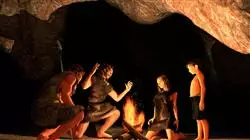University certificate
The world's largest faculty of humanities”
Why study at TECH?
Become an expert in Philosophical Anthropology, enhancing your analytical and critical capacity in just a few months"

The development of the human being, his social life, his relationship with culture and art or his permanent interaction with the metaphysical and the material are some of the most analyzed and most interesting areas in the world of philosophy. In order to acquire the necessary skills to master and draw conclusions from these complex aspects, constant updating and renewal of knowledge is required.
This is the reason why TECH has developed a Postgraduate diploma in Philosophical Anthropology and Cultural Theory, with which to give its students the opportunity to update and enhance their skills in this area. In this way, throughout the different modules, topics such as the Historical Panorama of the Conceptions of Man, the Spirituality of the Human Will, the Dimensions of the Personal Being, the Link between Thought and Language or the Constitutive Aspects of Human Culture are dealt with in depth.
All this, in a comfortable 100% online modality, which allows the student to acquire the concepts in a comfortable, dynamic and updated way, with total freedom of schedules. The organization of the studies is totally personalized, giving rise to a unique and unrepeatable opportunity that will not interfere with daily work.
Stand out for your knowledge in a sector of Philosophy in constant progress, thanks to the most up-to-date and dynamic contents"
This Postgraduate diploma in Philosophical Anthropology and Cultural Theory contains the most complete and up-to-date program on the market. The most important features include:
- Development of case studies presented by experts in Philosophical Anthropology and Philosophy of Culture
- The graphic, schematic, and practical contents with which they are created, provide practical information on the disciplines that are essential for professional practice
- Practical exercises where self-assessment can be used to improve learning.
- Its special emphasis on innovative methodologies
- Theoretical lessons, questions to the expert, debate forums on controversial topics, and individual reflection assignments
- Content that is accessible from any fixed or portable device with an Internet connection
With the knowledge you will acquire in this program, you will be able to face a promising future in this area of Philosophy"
The program’s teaching staff includes professionals from the field who contribute their work experience to this educational program, as well as renowned specialists from leading societies and prestigious universities.
The multimedia content, developed with the latest educational technology, will provide the professional with situated and contextual learning, i.e., a simulated environment that will provide immersive education programmed to learn in real situations.
This program is designed around Problem-Based Learning, whereby the professional must try to solve the different professional practice situations that arise during the academic year For this purpose, the students will be assisted by an innovative interactive video system created by renowned and experienced experts.
A complete journey through the history of Human Culture and the Dimensions of the Personal Self, which will maximize your skills"

Thanks to the most up-to-date and dynamic content, you will multiply your skills in Philosophical Anthropology, in a short time and with total freedom of organization"
Syllabus
The syllabus of has been designed by a team of experts in Philosophy and based on TECH's maximum quality criteria. Once the information has been chosen, it has been prepared following the strategy of the Relearning pedagogical methodology, to ensure and guarantee the student the optimal assimilation of the most essential concepts, in an agile and precise way. All this has resulted in the most complete, practical and effective program in the field of Philosophical Anthropology and Cultural Theory.

A Study Plan developed by experts and under the pedagogical methodology of Relearning, with which it will be easy for you to update your knowledge in Philosophy and Communicative Processes"
Module 1. Philosophical Anthropology I
1.1. Introduction
1.1.1. Human Beings as a Mystery
1.1.2. Nature and method of philosophical anthropology
1.1.3. Historical Overview of the Conception of Humans
1.2. Human Life
1.2.1. Historical Conceptions of Human Life
1.2.2. The Vital Principle and the Degrees of Life
1.2.3. The Origin of Human Life
1.2.4. Hominization Process: Evolutionary Theories and Assessment
1.2.5. The Principle of Human Life
1.3. The Phenomenology of Human Behavior
1.3.1. Attempts to Explain Human Behavior
1.3.2. Phenomena Specific to Humans
1.3.3. Animal Instinct and Human Instinct
1.4. Human Knowledge
1.4.1. Human Knowledge in General
1.4.2. External Sensations
1.4.3. Internal Perception
1.4.4. Intellectual Knowledge
1.4.5. Self-Conscience
1.4.6. Spirituality of Intellectual Knowledge
1.5. Human Desire
1.5.1. Human Desire in General
1.5.2. Sentient Tendencies
1.5.3. Human Will
1.5.4. Process of Volition
1.5.5. Freedom and Love
1.5.6. Spirituality of the Human Will
1.6. Human Affectivity
1.6.1. Human Affectivity in General
1.6.2. Emotions
1.6.3. Feelings
1.6.4. Pleasure and Pain
Module 2. Philosophical Anthropology II
2.1. Human Unity and Dualism
2.1.1. History of the Problem
2.1.2. Existence, Spirituality and Substantiality of the Soul
2.1.3. The Soul as a Form of Human Matter: Origin of the Personal Soul
2.1.4. Value and Dignity of the Human Body: Sexed Character
2.1.5. Man, Incarnated Spirit
2.2. Humans as Personal Beings
2.2.1. History of the Personal Conception of the Human Being
2.2.2. Nature of the Personal Being
2.2.3. Ontological and Psychological Constitution of the Person
2.2.4. Absolute Value of the Person
2.3. Dimensions of Personal Being
2.3.1. Bodily Dimensions of Personal Being
2.3.2. Historicity and Projectivity of Personal Being
2.3.3. Intersubjectivity and Sociability of Personal Being
2.3.4. Morality of Personal Being
2.3.5. Symbolic and Culture-Generating Dimension of Personal Being
2.3.6. Spirituality of the Personal Being
2.4. Death and Human Transcendence
2.4.1. Human Death
2.4.2. The Final Destination of the Human Being
2.4.3. Openness to Transcendence and Immortality
Module 3. Philosophy and the Media
3.1. Theory of Knowledge and Communicative Processes
3.1.1. Link between Thought and Language
3.1.2. Theory of Knowledge for Communicative Processes
3.1.3. The Relation of Human Beings with the World
3.1.4. Culture
3.2. History and Reflection on the Media
3.2.1. Difference between Information and Communication
3.2.2. From Gutenberg to the Internet
3.2.3. Positions regarding New Technologies
3.2.4. Information Security and Transparency
3.3. Effects and Consequences of Media Use
3.3.1. Typology of Media Effects
3.3.2. Media Content Analysis
3.3.3. Theories of Media Effects
3.4. Positions in Communication Theories
3.4.1. Communication Currents and Traditions in North America
3.4.2. Communication Currents and Traditions in Europe
3.4.3. Communication Currents and Traditions in Latin America
Module 4. Philosophy of Culture
4.1. Concept of Culture
4.1.1. Culture in the Classical Humanist Sense
4.1.2. Culture in the Modern Anthropological Sense
4.1.3. Fundamental Constitutive Elements of Culture
4.1.4. Toward a Strictly Philosophical Conception of Culture
4.1.5. Culture between Tradition and Novelty
4.1.6. Human Universality and Cultural Originality
4.2. The Person as a Cultural Being
4.2.1. The Historical Formation of the Concept of the Person
4.2.2. Formation of the Person and Cultural Integration
4.2.3. Culture at the Service of the Person
4.3. Constitutive Aspects of Human Culture
4.3.1. Language: Primary Human Function and Founding Element of Culture
4.3.2. Social Organization, Political Institution and Educational Institution
4.3.3. Relation to the Environment, Work, Technology and Science
4.3.4. Axiology and Culture
4.3.5. History and Culture
4.3.6. Religion and Culture

A program designed for you, with a wide variety of additional materials, so that you can delve deeper into the aspects of Philosophical Anthropology and Culture that interest you most"
Postgraduate Diploma in Philosophical Anthropology and Theory of Culture
Philosophical anthropology focuses on investigating fundamental questions about existence and human nature from a philosophical perspective. It analyzes the relationship between human beings and their cultural environment, inquiring into issues such as identity, freedom, morality and the meaning of life. Through the exploration of diverse philosophical currents, such as existentialism, structuralism and postmodernism, you will acquire the necessary tools to critically reflect on the human condition. The theory of culture, on the other hand, focuses on understanding the symbolic systems, social practices and structures of meaning that shape different cultures around the world. If you want to delve even deeper into the processes related to this field, at TECH Global University you will find the Postgraduate Diploma in Philosophical Anthropology and Cultural Theory that will help you fulfill this purpose. The program is taught in online mode and has a novel theoretical-practical approach that will allow you to study how ideas, values and symbols influence the construction of social reality and how they are transmitted from generation to generation.
Be an expert in philosophical anthropology and cultural theory
This Postgraduate Diploma is a proposal of voluminous, yet dynamic content devised by TECH as a way to update your competencies in the face of the new demands of the labor market. Within the respective training, we offer you both online classes that you can manage under your own time availability, as well as a diverse interactive syllabus that encompasses classical and contemporary anthropological theories, including functionalism, structuralism and culturalism, in order to analyze and contextualize specific cultural phenomena. At the end of the program, you will have developed a solid understanding of the philosophical and theoretical foundations of anthropology and cultural theory, and you will be able to critically analyze the interactions between human beings and their cultural environment. In doing so, you will succeed in addressing the challenges and opportunities presented in today's globalized and diverse world, contribute meaningfully to the field of study of anthropology, and understand human culture.







